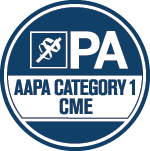Mayo Clinic Opioid Conference: Evidence, Clinical Considerations and Best Practice 2024
This course offers Live (in-person) and Livestream (virtual) attendance options.

Course Directors: Benjamin Lai, M.B., B.Ch., B.A.O., Oludare, Olatoye, M.D., and Julie L. Cunningham, Pharm.D., R.PH.
September 19 - 21, 2024 - Sheraton San Diego Hotel & Marina - San Diego, California
The Mayo Clinic Opioid Conference: Evidence, Clinical Considerations & Best Practice 2024 aims to highlight the shift in guidelines and public concern regarding the use of opioids in medical practice. This course provides the most up-to-date information regarding the appropriate indication for opioids in clinical practice. Topics cover the basics of opioid pharmacology and selection, evidence-based guidelines for opioid management, opioid tapering and legal considerations, as well as medical and interventional alternatives to opioids. In addition, the course covers a broad range of issues, including opioid use disorder and difficult patient conversations and guidelines to standardize the practice of opioid prescribing. This course includes lectures by experts in the field of pain medicine and opioid management as well as question and answer sessions.
This continuing education activity satisfies the new one-time, eight-hour training requirement for all Drug Enforcement Administration (DEA)-registered practitioners. Learners should claim only the credit commensurate with the extent of their participation in the activity.
Target Audience
This topic is important and has become a more visible public health issue. All fields within medicine that provide direct patient care are impacted, including medical, surgical and outpatient settings. All providers who prescribe (MD, DO, NP, PA, CNS) or administer (nurse, pharmacist, etc.) opioids to patients would benefit from attending this course. This course is particularly relevant for primary care providers that maintain and monitor patients on chronic opioid therapy.
Learning Objectives
Upon completion of this activity, participants should be able to:
- Discuss current state of the opioid epidemic.
- Describe the implications of CDC Opioid Prescribing Guidelines in various phases of care.
- Formulate strategies on how to have conversations with patients with challenging pain conditions such as pain sensitization and unexpected urine drug testing results.
- Discuss best practices on tapering opioids in clinical practice.
- Review non-opioid adjuvant procedural and pharmacological therapy for pain management.
- Review legal requirements regarding opioid prescribing.
- Review regulatory guidelines regarding opioid prescribing.
- Discuss the use of buprenorphine for pain management.
- Discuss the use of buprenorphine for opioid use disorder along with its effects on transitions of care.
Attendance at any Mayo Clinic course does not indicate or guarantee competence or proficiency in the skills, knowledge or performance of any care or procedure(s) which may be discussed or taught in this course.
Mayo Clinic Opioid Conference:
Evidence, Clinical Considerations and Best Practice 2024
San Diego, CA
September 19-21, 2024
Pacific Time
Printer Friendly/Mobile Device
Thursday, September 19, 2024 | |
6:30 a.m. | Registration and Breakfast |
7:30 a.m.
| Welcome and Course Overview |
7:40 a.m.
| Current State: Guidelines, Regulations, Recommendations, and Challenges (DEA) |
8:20 a.m.
| CDC Opioid Prescribing Guidelines: Application in Transitions of Care |
9:00 a.m.
| Clinical Pearls for Opioid Prescribing (DEA) |
9:40 a.m. | Refreshment Break |
9:55 a.m.
| Opioids in Medical Illness/Complex Pain Scenarios |
10:35 a.m.
| Medical Marijuana and CBD Products: Pro Con Debate |
11:15 a.m.
| Buprenorphine: Use in Pain Management and Opioid Use Disorder (DEA) |
11:55 a.m.
| Buprenorphine Patient Cases at Transitions of Care: Panel Discussion (DEA) |
12:35 p.m. | Adjourn |
Opioids & Pain Management: Interactive Case Reviews & In-Depth Discussion (Optional $200 Add-on, Lunch Included) (DEA) | |
1:00 p.m.
| The workshop will focus on opioids and challenging patient cases. Topics will include: tapering, managing patients on multiple controlled substances, unique scenarios across the lifespan, use of buprenorphine across clinical settings, applying 2022 CDC opioid prescribing guidelines in case-based scenarios. An opportunity for audience questions. |
4:15 p.m. | Adjourn |
Friday, September 20, 2024 | |
6:30 a.m. | Breakfast |
7:25 a.m. | Welcome |
7:30 a.m.
| Managing Challenges: Behaviors and Conversations |
8:10 a.m.
| CAREFUL Approach to Monitoring Patients on Controlled Substances & the Evidence of Combining the use of Opioids, Benzodiazepines and Other CNS Depressants |
8:50 a.m.
| Interventional Alternatives for Pain Management |
9:30 a.m.
| Harm Reduction: Naloxone/New Illicit Drugs/Fentanyl Strips (DEA) |
10:10 a.m. | Refreshment Break |
10:25 a.m.
| Supplements Commonly Used in Chronic Pain: What is the Evidence? |
11:05 a.m.
| A Surgeon’s Perspective on Pain & Opioids: Myths and Pearls (DEA) |
11:45 a.m.
| Nonopioid Adjuvants |
12:25 p.m. | Adjourn |
Saturday, September 21, 2024 | |
6:30 a.m. | Breakfast |
7:25 a.m. | Welcome |
7:30 a.m.
| Urine Drug Testing and Patient Conversations (DEA) |
8:10 a.m. | Using Opioids in Older Adults (DEA) |
8:50 a.m.
| Opioid Side Effects and Management (DEA) |
9:30 a.m.
| Biopsychosocial Spiritual Model of Chronic Pain & OUD |
10:10 a.m. | Refreshment Break |
10:25 a.m.
| Acute Pain Management for the Patient on Chronic Opioids (DEA) |
11:05 a.m.
| Tapering Opioids (DEA) |
11:45 a.m.
| Legal Implications of Opioid Prescribing (DEA) (virtual) |
12:25 p.m. | Closing Remarks |
12:30 p.m. | Adjourn |
Sheraton San Diego Marina - 1380 Harbor Island Drive, San Diego, CA 92101
Guest rooms have been reserved for attendees and their guests with special course rates at the Sheraton San Diego Marina. The group rate at the hotel is $269.00. In order to receive the special rates, reservations must be made before the room block is filled or before the expiration date of September 3, 2024, whichever comes first. After September 3, 2024, reservations will be taken based on space and rate availability. Each attendee is allowed one guest room at the special course room rate.
BOOK NOW
Bay Town Run of House - $269.00
Resort Experience Fee
Please note that there is an additional charge of $20.00 per room per night plus tax that is not included in the above room rates. The following amenities are bundled into this charge:
Fitness & Recreation
- Premium high-speed internet access
- Morning Yoga class
- 1-hour cruiser bicycle use
- 1.5-hour paddle board tour & lesson
- 1-hour daily tennis court rental with equipment for two
- Lawn games
- S’mores
- Unlimited local & domestic long-distance phone calls
- Electric vehicle charging
Transportation
Complimentary Airport shuttle transportation to and from the San Diego International Airport.
All travel and lodging expenses are the sole responsibility of the individual registrant.
Course Directors:
Benjamin Lai, M.B., B.Ch., B.A.O.
Oludare, Olatoye, M.D.
Julie L. Cunningham, Pharm.D., R.PH.
 Accreditation Statement
Accreditation Statement
In support of improving patient care, Mayo Clinic College of Medicine and Science is jointly accredited by the Accreditation Council for Continuing Medical Education (ACCME), the Accreditation Council for Pharmacy Education (ACPE), and the American Nurses Credentialing Center (ANCC) to provide continuing education for the healthcare team.
Credit Statement(s):
AMA
Mayo Clinic College of Medicine and Science designates this live activity for a maximum of 16.75 AMA PRA Category 1 Credits™. Physicians should claim only the credit commensurate with the extent of their participation in the activity.
 AAPA
AAPA
Mayo Clinic College of Medicine and Science has been authorized by the American Academy of PAs (AAPA) to award AAPA Category 1 CME credit for activities planned in accordance with AAPA CME Criteria. This activity is designated for 16.75 AAPA Category 1 CME credits. PAs should only claim credit commensurate with the extent of their participation.
AAFP
The AAFP has reviewed Mayo Clinic Opioid Conference: Evidence, Clinical Considerations and Best Practice 2024 and deemed it acceptable for up to 17.00 Live AAFP Prescribed credit(s). Term of Approval is from 09/19/2024 to 09/21/2024. Physicians should claim only the credit commensurate with the extent of their participation in the activity.
AAFP Prescribed credit is accepted by the American Medical Association as equivalent to AMA PRA Category 1 credit(s)™ toward the AMA Physician's Recognition Award. When applying for the AMA PRA, Prescribed credit earned must be reported as Prescribed, not as Category 1.
 ACPE
ACPE
Mayo Clinic College of Medicine and Science designates this educational activity for a maximum of 16.75 ACPE Knowledge contact hours. Participants should claim only the credit commensurate with the extent of their participation in the activity.
UAN Number: JA0000238-0000-24-114-L08-P
ANCC
Mayo Clinic College of Medicine and Science designates this activity for a maximum of 16.75 ANCC contact hours. Nurses should claim only the credit commensurate with the extent of their participation in the activity.
 IPCE
IPCE
This activity was planned by and for the healthcare team, and learners will receive 16.75 Interprofessional Continuing Education (IPCE) credit for learning and change.
Other Healthcare Professionals:
A record of attendance will be provided to all registrants for requesting credits in accordance with state nursing boards, specialty societies or other professional associations.
This continuing education activity satisfies the new one-time, eight-hour training requirement for all Drug Enforcement Administration (DEA)-registered practitioners. Learners should claim only the credit commensurate with the extent of their participation in the activity.
| Day - Session | Credit |
|---|---|
| Thursday - General Session | 4.75 |
| Thursday - Workshop | 3.00 |
| Friday - General Session | 4.50 |
| Saturday - General Session | 4.50 |
For disclosure information regarding Mayo Clinic School of Continuous Professional Development accreditation review committee member(s) and staff, please go here to review disclosures.
Available Credit
- 17.00 AAFP Prescribed
- 16.75 AAPA Category 1 Self-assessment
- 16.75 ACPE
- 16.75 AMA PRA Category 1 Credit™
- 16.75 ANCC
- 16.75 Attendance
- 16.75 IPCE
In response to company inquiries, we are excited to share that the Mayo Clinic Opioid Conference: Evidence, Clinical Considerations and Best Practice 2024 has expanded its commercial support offerings to include a variety of sponsorship opportunities! Please check out our comprehensive prospectus.
If you are interested in exhibiting, please complete the Letter of Agreement.
If you are interested in Sponsoring, please contact Lisa Winter
If you have additional questions, please contact: Lisa Winter
Please update your profile to let us know if you have dietary restrictions or access requirements.
To claim credit for livestream participation in this course, learners must view the content during the hours posted for the live activity. This course is not approved for on-demand delivery.
Commitment to Equity, Diversity and Inclusion
Mayo Clinic School of Continuous Professional Development (MCSCPD) strives to foster a learning environment in which individual differences are valued, allowing all to achieve their fullest potential.
Cancellation and Refund Policy
View Cancellation and Refund Policy
All requests must be submitted in writing using the Contact Us Form.
Any use of this site constitutes your agreement to the Terms and Conditions of Registration.

 Facebook
Facebook X
X LinkedIn
LinkedIn Forward
Forward